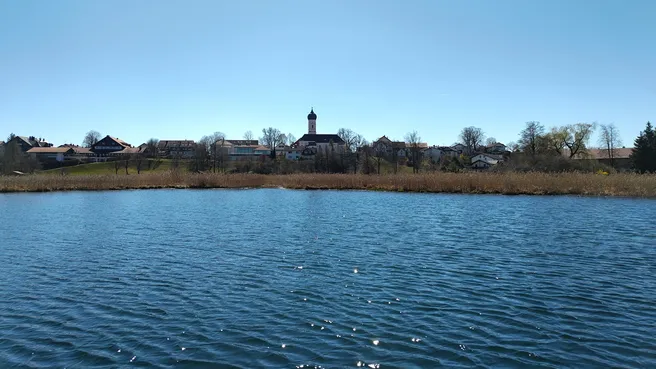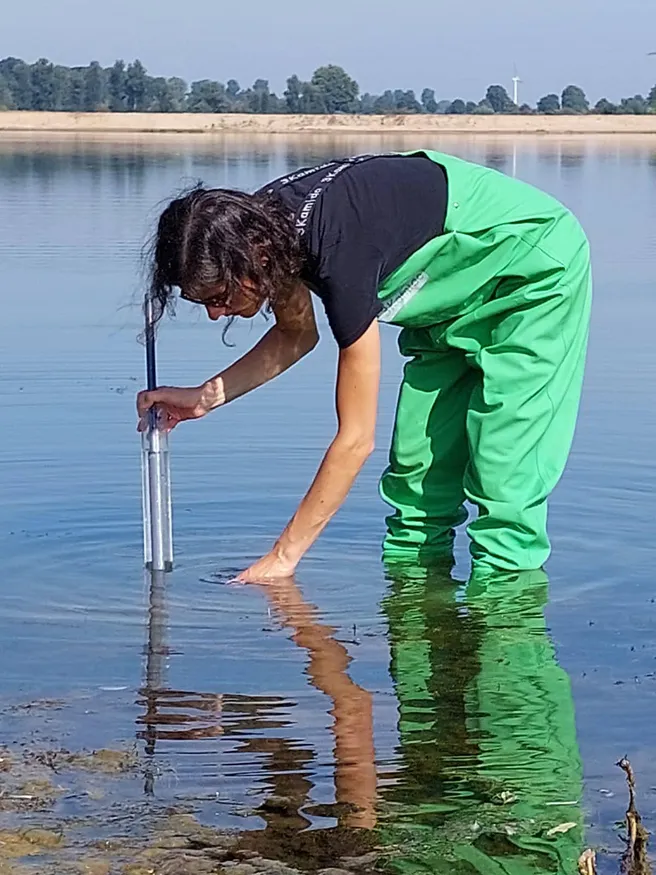Today's ecosystems are changing due to climate change, but also due to other anthropogenic influences such as changes in land use and pollution - all of which are part of “Global Change”. Prof. Ann-Marie Waldvogel's research focuses on the adaptation potential of water bodies to changing environmental conditions. This especially involves the organisms that live in the bodies of water under investigation.
This basic research investigates whether and how organisms can adapt to their environment. The results are particularly important for landscape planning and environmental protection when it comes to preserving certain adaptation mechanisms for the ecosystem.
What fascinates Ann-Marie Waldvogel in particular about her field?
“In my research, I combine limnology, i.e. aquatic ecology, with evolutionary biology and biodiversity genomics - this triad opens up fascinating interfaces and, for me, establishes the field of ”Global Change Limnology". I start where biodiversity originates - at the genomic level. All higher-level biological and then ecological processes depend on this level. Biodiversity therefore defines the function, quality and also the resilience of ecosystems - in my research, these are water bodies. For me, the greatest fascination lies in thinking from the very small to the very large - from the molecular to the ecosystem level, from the free-swimming DNA molecule to the adaptability of an entire lake to global change - and taking into account as many mechanisms of ecology and evolution as possible."
What is Ann-Marie Waldvogel looking forward to at the TUM Limnological Research Station in Iffeldorf?
"The TUM Limnological Research Station in Iffeldorf offers me the perfect conditions to further expand my interdisciplinary research on global change limnology. I am particularly looking forward to finding strong allies for interdisciplinary water research at TUM and especially at the TUM School of Life Sciences. The protection and management of freshwater ecosystems is of central importance for the sustainable transformation of our society and economy. The scientific findings and innovations required for this must therefore be advanced with a certain clout. I am very much looking forward to being able to contribute my part to this gain in knowledge of TUM's water expertise at the research station in Iffeldorf.
The research station offers us the basis for joint research with high quality standards, practical training for the next generation of scientists (in topics of biology, landscape architecture and planning and bioinformatics, as well as the connection to engineering) and space for scientific exchange in the TUM-internal, national and international discourse. I look forward to developing the station into an internationally visible center for research, teaching and development in the field of global change limnology."
About Ann-Marie Waldvogel: After studying biology in Heidelberg and environmental sciences in Frankfurt/Main, Ann-Marie Waldvogel completed her doctorate at the Goethe University in Frankfurt. As a postdoc, she researched the genomics of climate change adaptation in insects at the Senckenberg Biodiversity and Climate Research Center. In 2020, she became a junior professor at the Institute of Zoology at the University of Cologne, focusing on the ecological genomics of aquatic communities. Finally, she joined the TUM School of Life Sciences in April to work at the Limnological Research Station in Iffeldorf.


